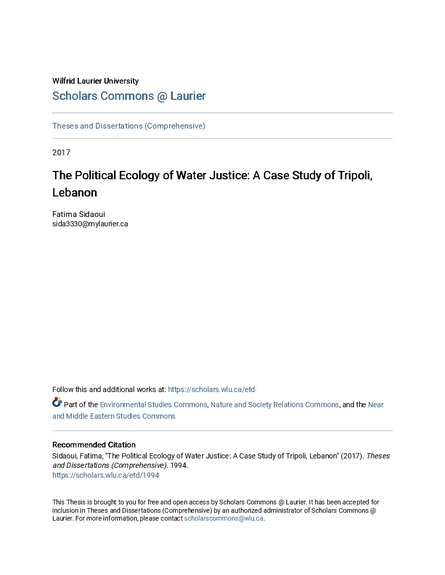
Despite the continuous efforts of the international community to address water scarcity, millions of people continue to lack access to safe drinking water and sanitation services. Water problems are often explained as natural phenomena or the result of technical failures, overlooking the fact that in many cases, water crises are those of socio-political inequalities rather than of scarcity. Examining water inequities, as political ecologists maintain, requires paying attention to the underlying power structures that perpetuate those injustices, and the agency available to people. My case study, located in Tripoli, Lebanon, attempts to understand those dynamics, specifically in relation to the role of civil society in enacting mass mobilizations around water issues. The latter was clearly lacking in the context of not only Tripoli but also on a national level. The Lebanese experience shows that the possibility of mobilizing for water equity does not solely depend on the prevalence of injustices, but is determined by other factors. This also underscores the possibility that hydrosocial agency doesn’t just manifest through political claims for water justice such as mass mobilizations. Other invisible struggles must not be forgotten when water inequities are the object of interest. Political ecologists, therefore, need to pay closer attention to how other forms of agency operate in the absence of social mobilization, for such agency is certainly social and ecological, and forms part of the fabric of power relations. If this thesis only scratched the surface of such practices, I would put them foremost on the future research agenda for understanding hydrosocial relations in Lebanon.
Resource collections
- UN Habitat - Urban Response Collection
- Urban Response - Urban Crisis Preparedness and Risk Reduction
- Urban Response Collection - Community Engagement and Social Cohesion
- Urban Response Collection - Economic Recovery
- Urban Response Collection - Environment and Climate Change
- Urban Response Collection - Housing, Land and Property
- Urban Response Collection - Urban Crisis Response, Recovery and Reconstruction
- Urban Response Collection - Urban Resilience